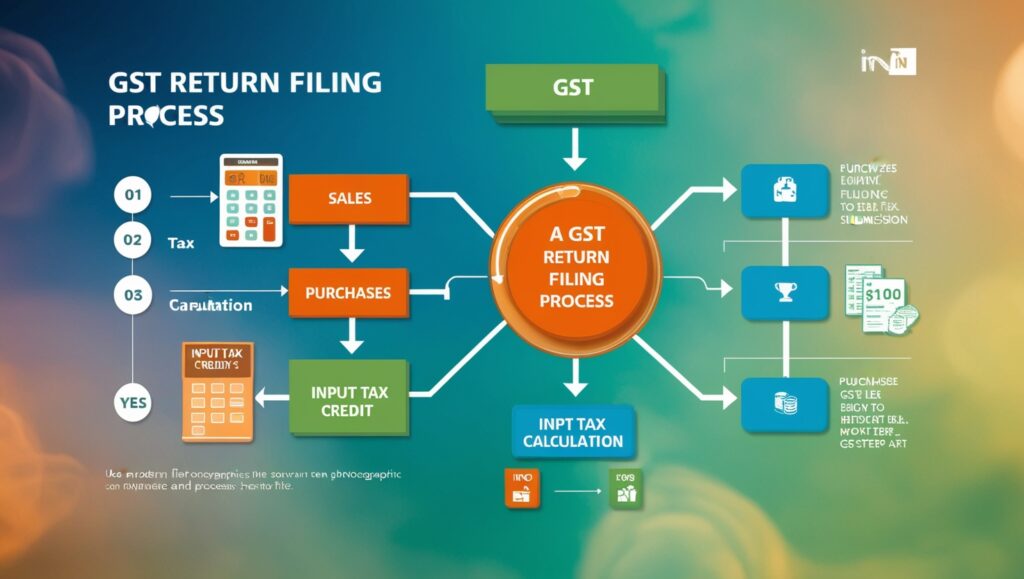GST Return Due Dates: A Comprehensive Guide
Staying compliant with India’s Goods and Services Tax (GST) regulations is paramount for businesses of all sizes. A cornerstone of this compliance is the timely filing of various GST returns. This article provides a comprehensive overview of key GST return due dates for the months of November and December 2024, and January 2025, emphasizing the critical importance of adhering to these deadlines.
Understanding the Significance of GST Return Due Dates
GST returns are crucial documents that businesses must file with the government to account for their tax liabilities. These returns provide a detailed record of all taxable transactions, including sales, purchases, and input tax credits. Timely and accurate filing of GST returns ensures that businesses:
- Fulfill their legal obligations: Non-compliance can lead to severe penalties, including hefty fines and even imprisonment in some cases.
- Maintain accurate financial records: GST returns serve as valuable financial records, aiding in better financial planning and decision-making.
- Claim legitimate input tax credits: Timely filing allows businesses to claim eligible input tax credits, reducing their overall tax burden.
- Avoid interest charges: Late filing often attracts interest charges, increasing the financial burden on businesses.
- Maintain a positive reputation: Consistent compliance with GST regulations enhances a business’s credibility and trustworthiness.
GST Return Due Dates
GSTR-3B: Monthly Summary Return
GSTR-3B is a simplified return that summarizes outward supplies, inward supplies liable to reverse charge, and ITC. Here are the upcoming due dates:
- November 2024: Due on December 20, 2024.
- October-December 2024 (Quarterly Filers): Due on January 22 and 24, 2025 (depending on the state).
GSTR-1: Statement of Outward Supplies
GSTR-1 records all outward supplies of goods and services. This return is crucial for enabling the recipient to claim ITC.
- November 2024: Due on December 11, 2024.
- October-December 2024 (Quarterly Filers): Due on January 13, 2025.
IFF (Optional): Invoice Furnishing Facility
The IFF is an optional return for taxpayers under the Quarterly Return Filing and Monthly Payment of Taxes (QRMP) scheme. It allows the monthly submission of invoices for ITC purposes.
- November 2024: Due on December 13, 2024.
CMP-08: Quarterly Return for Composition Scheme
Taxpayers registered under the Composition Levy Scheme must file CMP-08 to report their quarterly turnover and tax liability.
- October-December 2024: Due on January 18, 2025.
Other Important GST Return Due Dates
Apart from the widely applicable returns like GSTR-3B and GSTR-1, certain specialized returns have specific deadlines. These include:
- GSTR-5 (for non-resident taxable persons): Due on December 13, 2024.
- GSTR-5A (for OIDAR services): Due on December 20, 2024.
- GSTR-6 (for Input Service Distributors): Due on December 13, 2024.
- GSTR-7 (for TDS deductors): Due on December 10, 2024.
- GSTR-8 (for TCS collectors): Due on December 10, 2024.
- RFD-10 (for refunds): Two years from the last day of the quarter in which the supply was received.

Navigating the GST Return Filing Process
Filing GST returns can be complex, especially for businesses with multiple transactions and complex supply chains. To ensure smooth and timely filing:
- Maintain meticulous records: Keep accurate and up-to-date records of all sales, purchases, and other relevant transactions.
- Utilize GST software: Utilize GST-compliant software to automate calculations, generate reports, and streamline the filing process.
- Stay updated on changes: Regularly check the official CBIC website for any updates, notifications, or changes in due dates or filing procedures.
- Seek professional guidance: Consult with a chartered accountant or tax consultant for expert advice on GST compliance and filing.
Consequences of Non-Compliance
Failing to file GST returns on time can have serious repercussions:
- Penalties and interest charges: Late filing attracts hefty penalties and interest charges, significantly impacting a business’s profitability.
- Legal action: In severe cases, non-compliance can lead to legal action, including prosecution and imprisonment.
- Input tax credit restrictions: Delayed filing can impact a business’s ability to claim input tax credits, increasing their tax liability.
- Reputational damage: Non-compliance can damage a business’s reputation and erode customer trust.
Conclusion
Staying compliant with GST regulations is not just a legal requirement; it’s a strategic imperative for businesses in India. By understanding the significance of GST returns, adhering to the prescribed due dates, and maintaining accurate records, businesses can ensure smooth tax compliance, minimize risks, and focus on growth and development.
Disclaimer: This article provides general information and should not be considered professional tax advice. It’s recommended to consult with a qualified tax advisor for specific guidance based on individual circumstances.
What are the due dates for GST returns?
GSTR-3B (monthly summary return): Due on the 20th of the following month.
GSTR-1 (statement of outward supplies): Due on the 11th of the following month for monthly filers.
For quarterly filers, the dates differ based on the specific quarter.
What is the due date for GSTR-1 and GSTR-3B?
Quarterly filers: By the 13th of the month following the quarter (e.g., January 13, 2025, for Oct-Dec 2024 quarter).
GSTR-3B:Monthly filers: 20th of the following month.
Quarterly filers: By the 22nd or 24th of the following month, depending on the state.
What is GSTR-1, GSTR-2, and GSTR-3B?
GSTR-2: A return (currently suspended) for reporting inward supplies (purchases) made.
GSTR-3B: A simplified monthly summary return for reporting outward supplies, inward supplies liable to reverse charge, and claiming input tax credits.
What is the monthly due date for GST?
GSTR-3B: 20th of the following month.
GSTR-1: 11th of the following month (for monthly filers).
These dates may change if a taxpayer is under the QRMP scheme or follows a quarterly filing schedule.
What is the due date for the GST annual return?
Is GSTR-1 due date monthly or quarterly?
Monthly Filers: 11th of the following month.
Quarterly Filers: By the 13th of the month following the respective quarter.
These FAQs cover the key questions about GST return due dates and filing, making compliance easier to understand for businesses.
For more update GST visit here.









